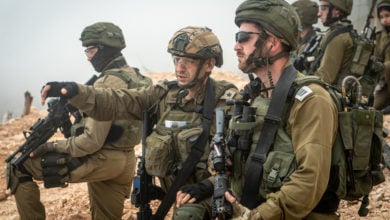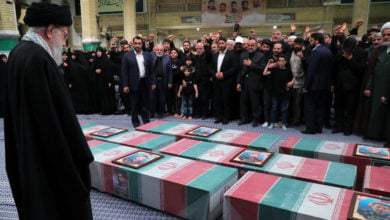A demonstration on May 28 against the destruction of a park to build a shopping mall in Istanbul became the flash point for the current wave of struggle in Turkey. Though the country is no stranger to police brutality, the cruelty of the police against the peaceful protesters in Gezi Park sparked solidarity demonstrations against which the police acted even more violently. The police have been filmed attacking passersby, beating them to the ground and then walking away. They have shot tear gas grenades directly at people, and in at least one instance run over a protester with a water cannon truck.
The current developments are a blow to the image of Turkey as a model democracy, an image that the United States and its imperialist allies like to promote of a country doing their bidding.
Following the defeat of the Central Powers in World War I, the Republic of Turkey, headed by Mustafa Kemal Ataturk, replaced the Ottoman Empire, up to then a regional colonial power. Ataturk initiated many progressive reforms and received substantial aid from the Soviet Union but was fiercely anti-communist, ordering the assassination of the entire Turkish communist leadership in 1921. As a country that was never colonized by European imperialists, Turkey, a member of NATO since 1952, has a higher level of development than the former colonies and neo-colonies of the region.
Since the 1920s, Turkey has gone through many periods of military rule. Strong state repression has been the norm, not the exception. The current ruling party, the Justice and Development Party, or AKP, was formed in 2001 and considers itself guided by Islamic principles. It has gained popularity by carrying out various social welfare programs similar to those of other Islamic-oriented parties in the Middle East. It won the elections in 2002, and with victories in subsequent elections the AKP has been the ruling party ever since. Recep Tayyip Erdoğan is the prime minister and Abdullah Gül the president, both of the AKP.
Embrace of neoliberal policies
Turkey’s embrace of neoliberal economic policies predates the rule of the AKP and goes back to the 1980s. With massive privatizations and opening of the economy to transnational corporations, the class divide has widened in Turkey. This is particularly evident in the startling difference between a few metropolitan cities like Istanbul and Ankara and much of the countryside, which has seen little development. The effects of the catastrophic earthquake of 1999, which killed an estimated 35,000 people, underlined this uneven development.
The election of the AKP was not welcomed by much of the political establishment, which saw it as a threat to Turkey’s secular history. But other parts of the ruling class saw the AKP as a means of reducing the contradictions between the majority of Turkey’s working-class population and the elite in the big cities, who raced to emulate the West culturally.
Approximately a quarter of Turkey’s population are Kurdish in nationality, up to 20 million people. While U.S. propaganda sheds crocodile tears for the Kurdish population in countries it is targeting for regime change—Iran and Syria, and Iraq prior to the 2003 invasion—in fact, by far the largest population of Kurds live in Turkey. And Turkey’s military has been severely repressing them for decades. Bombings of Kurdish villages has been commonplace, a practice that has gone on unabated under the AKP.
Much like its predecessors, the AKP government has closely followed the neoliberal economic model. It has attempted to create an aura of independence around Turkey’s foreign policy, such as its strong rebukes against Israel after Israel massacred nine activists on a humanitarian mission to Gaza in June 2010. All nine activists Israel killed in international waters were Turkish, one was a dual U.S.-Turkish national.
Still, much like the rest of its record, the AKP’s foreign policy has only differed from previous administrations superficially. Nowhere has this been more evident than Turkey’s approach to the conflict in Syria. Turkey used to have good relations with its neighbor. But shortly after the Syrian conflict started in February 2011, the United States and its junior partners saw this as an opportune time to press for regime change, a policy they had long pursued.
Turkey has not just been a supporter of the opposition in Syria, it has been a leading force in organizing a pro-imperialist political leadership—in particular the Muslim Brotherhood component backed by the wealthy rulers of Qatar—and played a key role in providing logistical support to the so-called Free Syrian Army. The FSA uses Turkish soil in areas bordering Syria as its staging ground, where armed FSA bands roam freely and cross the border at will.
What has compounded frustration for many is the fact that the rebellion is bringing violence to Turkey itself, at the hands of Wahabbist rebel organizations like the Al Nusrah Front. What were once occasional shells and stray bullets from battles on the border have become car bombings and the arrest of Al Nusrah fighters from Syria who were in possession of the deadly nerve gas sarin, which was allegedly going to be used on the Turkish town of Adana by the rebels.
There have been large demonstrations across Turkey in opposition to the government’s housing of the FSA and its active support of Syria’s opposition.
The current demonstrations are partly a continuation of the strong mass movement in opposition to Turkey’s direct involvement in Syria’s affairs, a policy that much of the Turkish population opposes. On May 11, there were large explosions in the Turkish town of Reyhanli, near the Syrian border, killing approximately 100 Turkish civilians. Similar to previous instances of civilian Turkish casualties of the Syrian civil war, Erdoğan’s government blamed the Syrian government for the killings. However, evidence strongly suggested that the explosions were the work of elements from the FSA, not the Syrian government.
Today the rift in society between religiosity and secularism comes from the governance of the AKP. For many people, the AKP represents strong economic growth and a resurgence of Turkey as a regional power. The AKP even managed to appease and calm the troubles in Kurdistan. Opinion has begun to sour, though, as the Erdoğan government has taken sides in the Syrian rebellion beginning in 2012, introduced alcohol control laws, and attacked women’s reproductive rights, all with little public debate.
The main opposition party in Turkey, the Republican People’s Partyor (CHP), has its origins as one of the first parties in Turkey, being the creation of the Kemalists. It is a secular, liberal nationalist and social democratic organization. Prime Minister Erdoğan has accused the party of stoking tensions in Turkey for political gain.
The forces at play in Turkey, however, are much broader, and far less clear-cut than simply a struggle between two ruling-class parties. The sentiment of secularism is a broad and deep trend. The political left (socialist, communist) is also rather large, though split up, and active in the country.
Role of the left
The Turkish left, most notably the Turkish Communist Party, or TKP, has been actively opposing Turkey’s involvement in NATO’s intervention in the Syrian conflict. In January, the TKP even stormed the gate of a port where Patriot missile systems were being offloaded for installation along the border with Syria. Anti-imperialist organizing has been consistent and militant.
The TKP has played an active role in organizing the current protests and the ones in May. Unlike the establishment opposition parties and parts of the military leadership, whose critique of the AKP revolves solely around tactical and superficial issues, Turkey’s left and other anti-imperialist forces are struggling against a state that is shielding its anti-worker, pro-imperialist record with an Islamic front.
A general strike called for June 5 is being organized by the DISK (Confederation of Revolutionary Trade Unions), KESK (Confederation of Public Workers’ Unions), Egitim-Sen (Education and Service Workers’ Union), TMMOB (Union of Chambers of Turkish Engineers and Architects) and the TTB (Turkish Medical Association). Latest reports are that Turk-IS, the county’s largest union confederation, is also taking part.
This shows that the organized sections of the working class are now getting involved in the struggle on a mass scale. The strike itself, while related to economic issues, is also declared as a warning against the government, demanding that it stop repressing the demonstrations.
The Turkish military
A major force at play, though one that is relatively quiet at the moment, is the Turkish military. The military is seen by some as the safeguard to the country’s secularism. It has also been involved in several coups, most recently in 1980. In 2008, fears of a coup in the government resurfaced and led to the arrest of dozens of generals and journalists on grounds of plotting a coup.
This case caused a small riot in April in connection with a demonstration in support of the journalists and generals at a courthouse, mainly organized by the CHP. The military is responding to the current protests in divergent ways. In Istanbul, soldiers have been seen giving protesters face protection and simple gas masks, whereas in the country’s capital, Ankara, the military has been working with the police in attacking the protests.
Battle for democracy
Many people who have not joined the protests will argue that it is absurd to fight so much over a park and some trees. But for the majority of those in the streets, that issue served only as the ignition for something much more meaningful and deep—the battle for genuine democracy in Turkey.
The level of police repression proves once again that bourgeois democracy—that is, democracy with the capitalist class in power—has little tolerance for dissent that threatens the dominance of that ruling class. But popular resistance leading to the conquest of power by the working class and its allies is the way the battle for democracy can finally be won, in Turkey and elsewhere.
As the struggle in Turkey continues, the Party for Socialism and Liberation extends our support and solidarity to the people of Turkey. As time goes on, we will attempt to provide additional analysis of the ever-changing struggle there.






